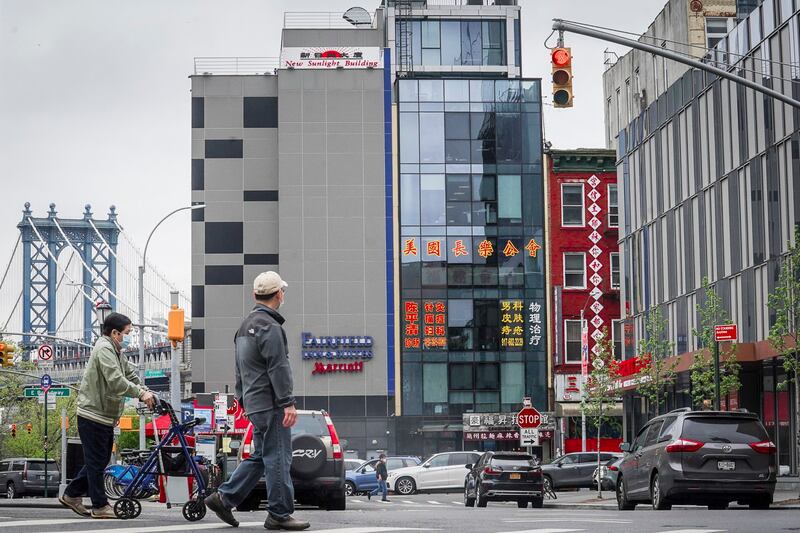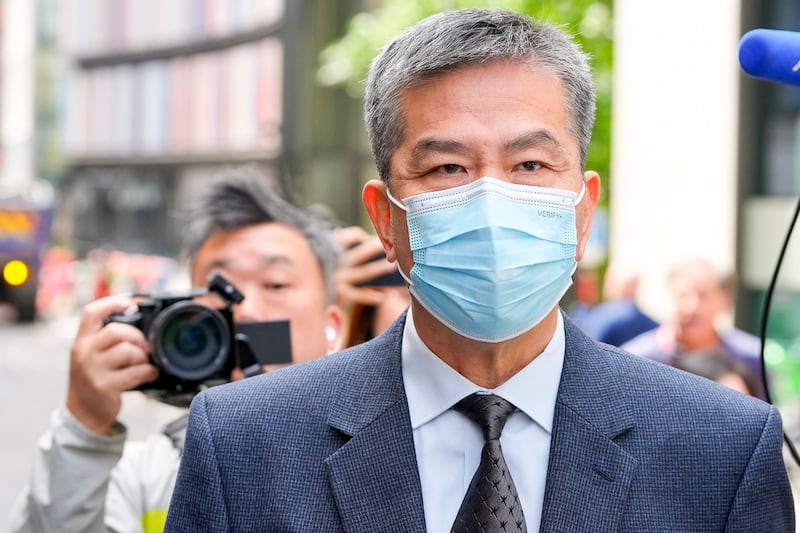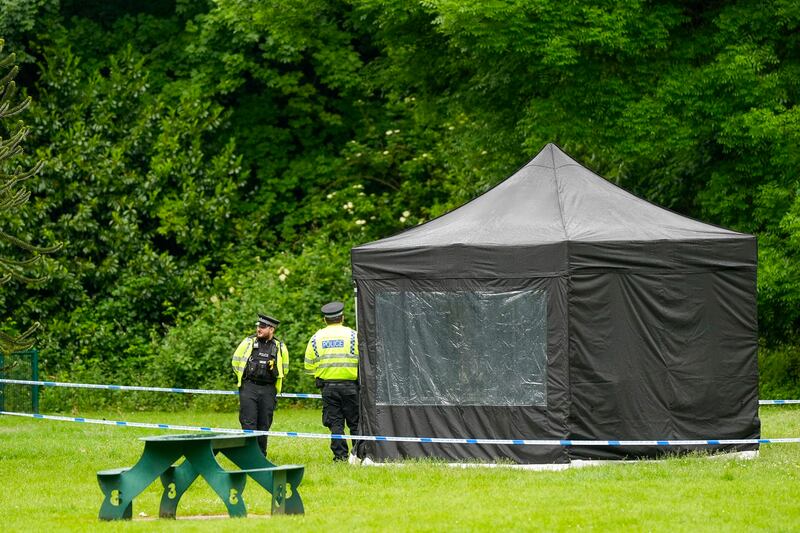Hong Kong businessman Herbert Chow, who fled the city after his pro-democracy children's clothing chain Chickeeduck was targeted by the government, has surrounded his U.K. home with floodlights and surveillance cameras as an unexplained death in a Hong Kong spying case sends shockwaves through the exile community.
Chow, who now runs a home decoration business, wound up Chickeeduck and left the city in 2023, hoping to place himself beyond the reach of the Hong Kong authorities.
But he was already keenly aware that overseas Hong Kongers were being targeted by agents and supporters of the Chinese state, with secret Chinese police stations reported in a number of countries.
The store chain, which was a prominent member of the "Yellow Economic Circle" of businesses that supported the 2019 protest movement, was raided by national security police in 2021, after it displayed a statue of "Lady Liberty," a symbol of the protest movement.
Chow knew he could be a target, and set to work making a fortress of his British home.
"When you approach the gate to my house after dark, the entire front garden lights up," Chow said. "I think this is a bit of a deterrent."

"We can see now [from this Hong Kong spying case] that they actually go to people's houses looking for them, so I think I need to reappraise the whole gate area," he said.
"I want to make it so that I can film anyone who may be following or monitoring me ... so I need to install some cameras to get a horizontal image," Chow said.
Former Marine found dead
Chow's review of his personal security comes after Matthew Trickett, a former British Marine turned private security guard who had been accused of spying for the Hong Kong authorities, was found dead in a British park on May 19.
While police have since concluded that there was nothing suspicious about his death, accusations on the charge sheet that Trickett, together with Bill Yuen, an employee of the Hong Kong Economic and Trade Office in London, and British immigration officer Peter Wai forced entry into a U.K. home on May 1 have sent shockwaves of fear through the Hong Kong exile community.
Yuen and Wai are scheduled to stand trial in February 2025, and have been released on bail.
When he arrived in Britain, Chow also bought two cars, one to use as a decoy, to help him evade surveillance by Chinese agents, he told RFA Cantonese.
"I have two identical cars ... so as to confuse anyone following me," he said. "At the time I wondered if I was too nervous, but now that we've seen them engaging in such ridiculous espionage activities, I think I should have done more."

So far, the only trouble Chow has experienced was when a car window was smashed and some items stolen from inside, he said.
But he believes it's only a matter of time, citing warnings from the Hong Kong government that "fugitives" from the city -- 14 of whom already have bounties on their heads -- will be pursued for the rest of their lives.
"Chris Tang said that people with warrants for their arrest will be targeted first under Article 23," Chow said, in a reference to a second national security law passed in March that extends the scope of the crackdown on pro-democracy activists and public critics of the authorities that began in the wake of the 2019 protests.
"The national security department has had a budget of HK$8 billion approved," he said. "I think my turn will come."
Spy charges
British police on Monday charged three people with spying for the Hong Kong government after a nationwide operation that saw 11 arrests using powers under new national security legislation.
Wai and Yuen have been charged under the United Kingdom's National Security Act 2023 with "assisting a foreign intelligence service," and "foreign interference," London's Metropolitan Police said in a statement on May 13.
"The foreign intelligence service to which the above charges relate is that of Hong Kong," the statement said.
The Hong Kong government has demanded full disclosure from the British government, while China has slammed the charges as "groundless and slanderous."

The three men were accused of assisting a foreign intelligence service between December and May by "agreeing to undertake information gathering, surveillance and acts of deception" in Britain, according to the charges.
A second charge alleges that Yuen, Wai and Trickett conducted "foreign interference" by forcing entry into a residential address in Britain on May 1.
All three men appeared in court only to confirm their personal details, and entered no plea. They were all released on bail.
By the time of their next court appearance on May 24, Trickett was dead.
The indictment named U.K.-based former pro-democracy lawmaker Nathan Law, exiled activist Finn Lau and veteran labor unionist Christopher Mung, all of whom have bounties on their heads and warrants for their arrest issued by Hong Kong's national security police amid an ongoing crackdown on public dissent, as among the targets of the alleged activities.
Translated by Luisetta Mudie. Edited by Malcolm Foster.
